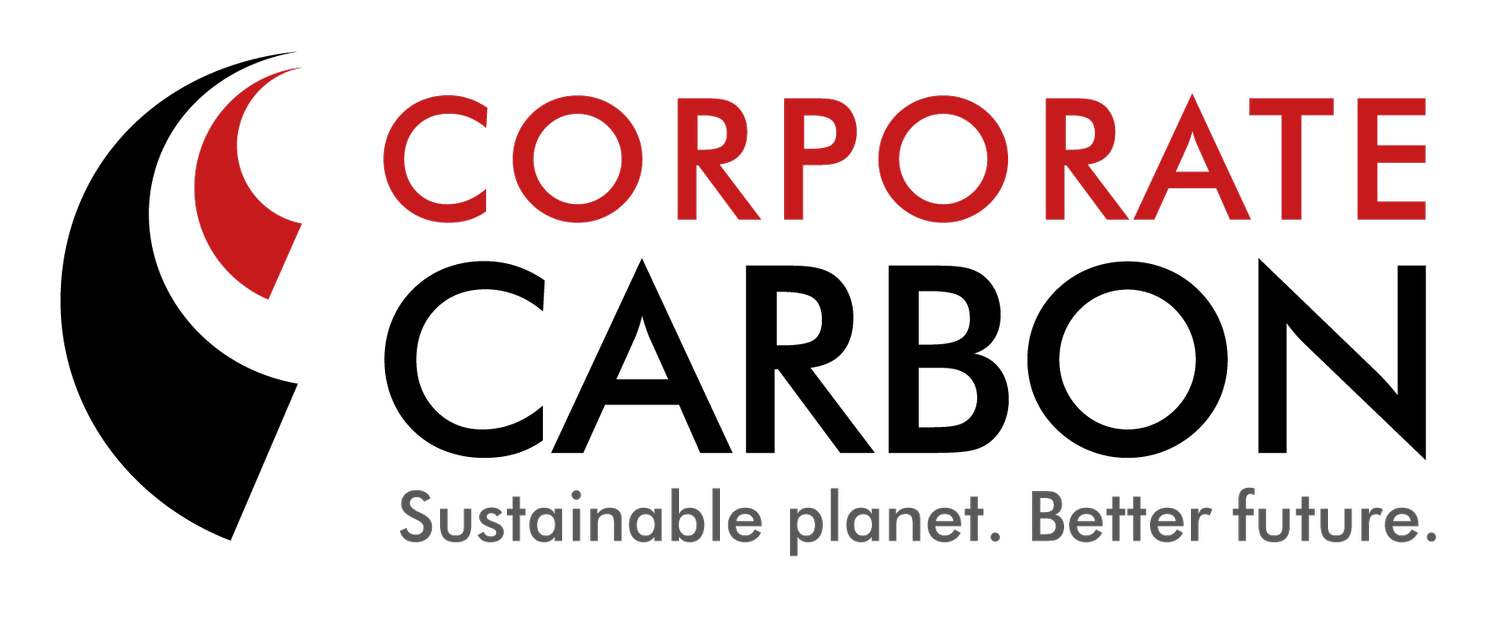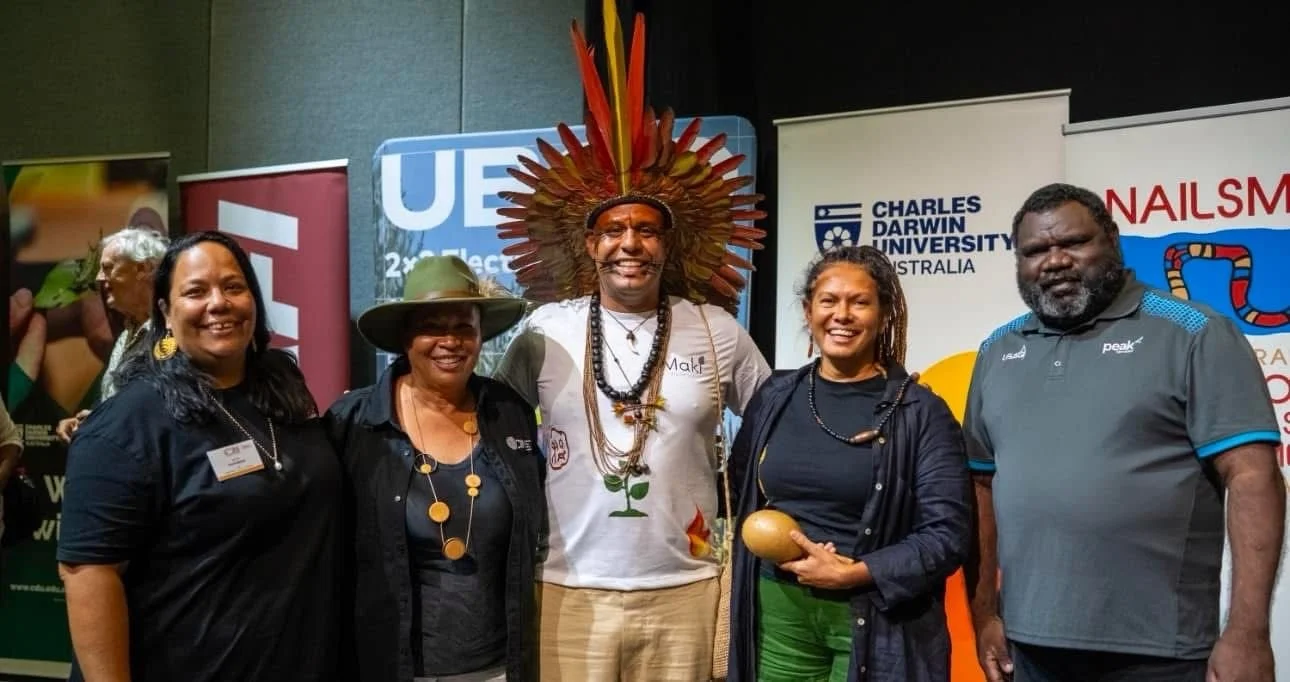Galvanising wildfire management worldwide
Marcelo pictured with Australia’s Hon. Josh Wilson MP, Assistant Minister for Climate Change and Energy (Left), training a new generation of fire professionals, Cerrado, Brazil, and this week at COP30.
Marcelo Santana, Fire Operations Lead at Maki Planet Systems, is attending COP30 in his homeland of Brazil. From a speaking engagement 11-12 November organised by the World Economic Forum and on 13 November at the Social Innovation House, Corporate Carbon will follow Marcelo’s journey at COP30. As two weeks of climate action focused on implementation, inclusion, and innovation begin, we reflect on some of the highlights of Marcelo’s year-to-date.
Marcelo Santana pictured between the Indigenous Carbon Industry Network’s director Suzanne Thompson and Inaugural Director and Co-Chair Cissy Gore-Birch OAM alongside delegates at the annual savanna fire form hosted in Larrakia Country (Northern Australia) this February.
February: Sharing insights at the Indigenous Carbon Industry Network’s Savanna Fire Management Forum
At the Indigenous Carbon Industry Network’s Savanna Fire Management Forum, Marcelo took the stage to share updates on Brazilian wildfire management. During his time there, he met with the Hon. Josh Wilson MP, Assistant Minister for Climate Change and Energy, where they discussed opportunities to showcase Australia’s savanna fire management model in viable regions globally. Marcelo also participated in a panel discussion on taking savanna fire management global, drawing from his experience in the Cerrado and highlighting the importance of Indigenous knowledge sharing in developing strategies.
Excerpt from a recent study published in Biodiversidade Brasileira
March-April: Researching the effects of prescribed burning on native plants
In savanna fire management, the precise timing of burns is critical. During the quieter months, Marcelo contributed to two studies in Biodiversidade Brasileira (published in May and October) which highlighted how integrated fire management supports Cerrado ecosystems including the pequizeiro Caryocar brasiliense and Hancornia Gomes trees. “We found that prescribed burning increases fruit yield compared to uncontrolled wildfires or fire exclusion,” he explained. “Integrated fire management plays a vital role in sustaining both biodiversity and local livelihoods across some of the world’s most remote regions.”
Video shared with permission from Cavalcante Environmental Volunteer Brigade (BRIVAC)
May-July: Training the next generation of Brazil’s volunteers
In the Cerrado region, Maki Planet Systems is partnering with community brigades and Indigenous knowledge holders to strengthen local capacity and use fire as a tool for protection and regeneration. During the 2nd Regional Symposium on Integrated Fire Management in Chapada dos Veadeiros (May 2025), Marcelo joined BRIVAC’s Rafael de Souza to train 22 new volunteers—starting in the classroom before heading into the field. Building on his ongoing work with the Kalunga Wildfire Management Project, Marcelo shared practical insights in ecological fire management and cultural burning, helping equip Brazil’s fire new professionals to protect both people and landscapes.
On video (again by the Cavalcante Environmental Volunteer Brigade – BRIVAC), Marcelo’s fieldwork continues into the late dry season.
August-now: using fire as a tool to manage the late dry season impacts
As the late dry season took hold across the Cerrado in 2025, Marcelo’s fieldwork continued, seeing him lead brigade operations and deploy strategic burning techniques to control blazes. Working closely with local teams, day-in and day-out Marcelo is demonstrating how fire can be used as a tool for protection and restoration, helping to rebalance fire-adapted ecosystems and reduce emissions from severe late-season events. In terms of ecosystem recovery and carbon outcomes, only time will tell the full results, but Marcelo’s dedication in the field is already making a visible difference on the ground.



